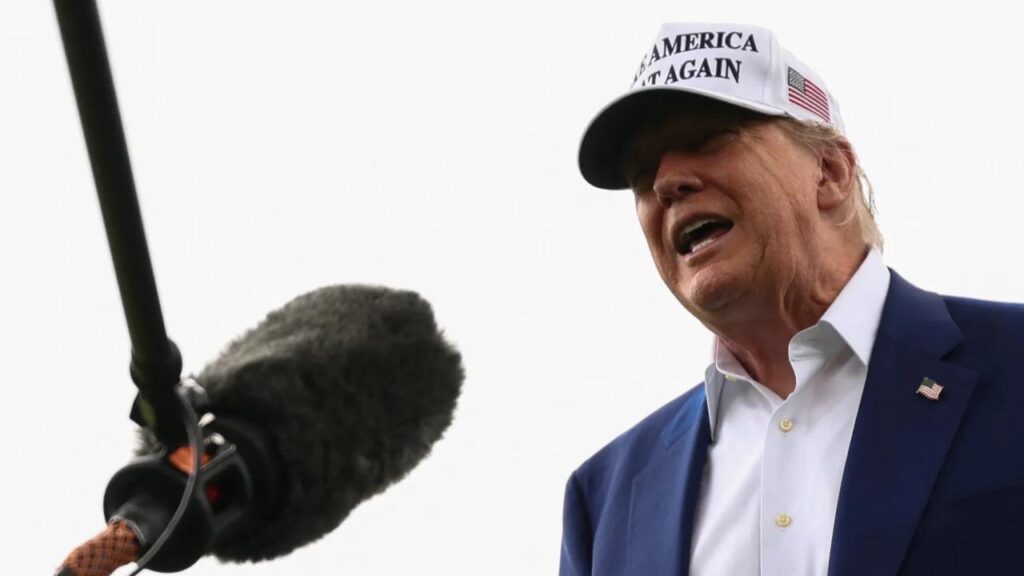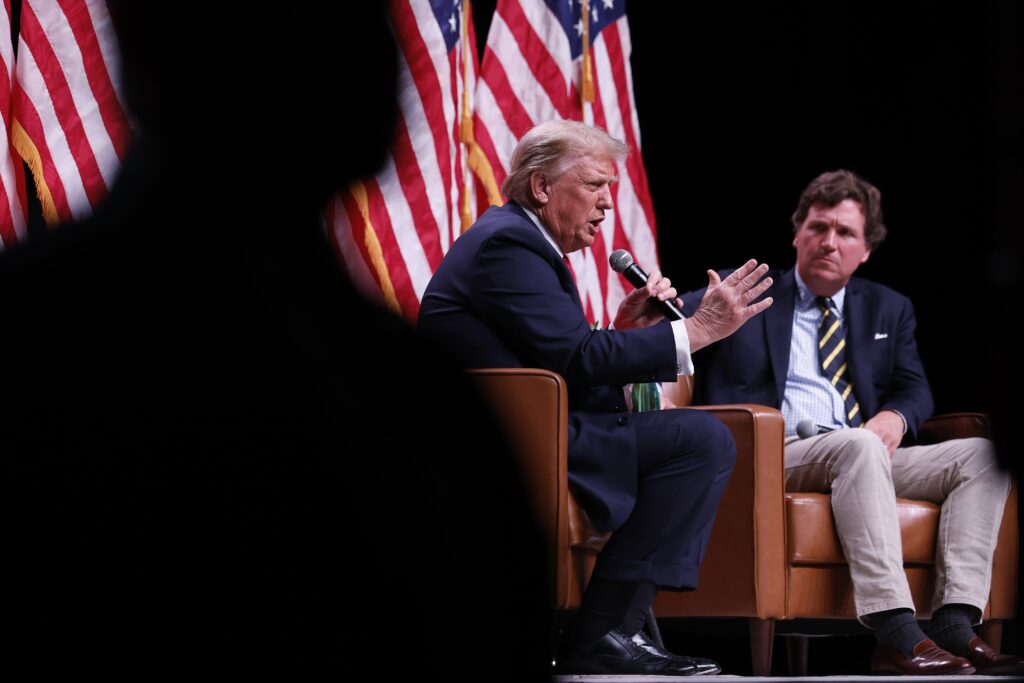Former President Donald Trump has signaled that the U.S. could launch a military strike on Iran if Tehran doesn’t back down from its advancing nuclear program—a move that has jolted Washington and rattled global allies. Speaking Monday, Trump said, “I may do it, I may not do it,” referring to a potential U.S. attack on Iran’s underground nuclear facility at Fordow.

Meanwhile, Iran’s Supreme Leader Ayatollah Ali Khamenei fired back with a stark warning: any U.S. strike would lead to “irreparable consequences,” heightening fears of a regional war.
Trump Hints at U.S. Military Strike in Iran
| Key Development | Detail |
|---|---|
| U.S. Prepping for Airstrike | Strike plans for Iran’s Fordow nuclear site reportedly ready |
| Iran’s Threat Level | Khamenei promises “severe, irreparable” retaliation |
| Regional Tensions Rising | U.S. naval assets moved to Eastern Med and Arabian Sea |
| Political Division | Trump allies like Bannon oppose military escalation |
| Congressional Alarm | Lawmakers urge Trump to seek approval before acting |
This isn’t just saber-rattling. With military forces mobilizing and threats escalating, both the U.S. and Iran are teetering on the edge of a potential conflict that neither side may fully control. One wrong move, one misread signal, and the Middle East could be facing its most dangerous war in a generation.
Pressure Boils Over
After a June 12 deadline for Iran to abandon its nuclear program passed without movement, Trump shifted from diplomacy to possible military action. He has demanded Iran’s “unconditional surrender,” saying negotiations have reached their limit.
“Iran’s been warned. They know what comes next if they don’t comply,” Trump told reporters. According to defense insiders, Pentagon plans now include precision strikes using bunker-buster bombs aimed at Iran’s fortified Fordow site.
“We’re at a point where words have failed. This could be the moment it all changes,” a former National Security Council official told me. Having covered the U.S.-Iran nuclear standoff since the Obama years, this feels like the tensest moment in over a decade.
Tehran Draws a Line
Khamenei’s national address pulled no punches. “If America makes this mistake, the consequences will be severe and irreparable,” he warned, standing before a wall of Iranian flags. Military leaders echoed that message, stating that U.S. bases in the Middle East and assets “anywhere in the region” would be fair game.
A major escalation would likely target not just military facilities but also economic infrastructure—potentially affecting oil transport through the Strait of Hormuz.
Who’s Backing What?
Trump’s hint at a strike has divided his own political base. Steve Bannon, former White House strategist and key MAGA figure, warned against a new war in the Middle East. “We can’t do this again. We’ll tear the country apart,” Bannon said in a podcast episode shared Monday.

Meanwhile, Senate Democrats urged caution and legal oversight. Some are preparing a resolution to block any attack without explicit congressional authorization—something last seen during the buildup to the 2003 Iraq war.
Countdown to Crisis
Here’s how we got here:
- June 12: IAEA reports Iran in violation of key nuclear safeguards.
- June 13: Israel launches limited strikes on Iranian targets, ramping up regional pressure.
- June 18: Trump threatens direct U.S. action; Khamenei counters with most serious warning yet.
The clock is ticking. Reports say Trump expects a shift in Iran’s posture “within 24 to 48 hours,” or the U.S. will move forward with military plans.
What Comes Next?
Military analysts warn a strike on Fordow could backfire. The site is buried deep inside a mountain—hard to reach even with advanced munitions. Worse, it could spark retaliation that spirals into a regional war.
Iran holds sway over proxy groups in Iraq, Syria, Lebanon, and Yemen, meaning any attack risks blowback far beyond Iran’s borders.
“Even a ‘limited’ strike could ignite a chain reaction that burns across the Middle East,” said Gen. Mark Hertling (Ret.) on CNN Monday night.






